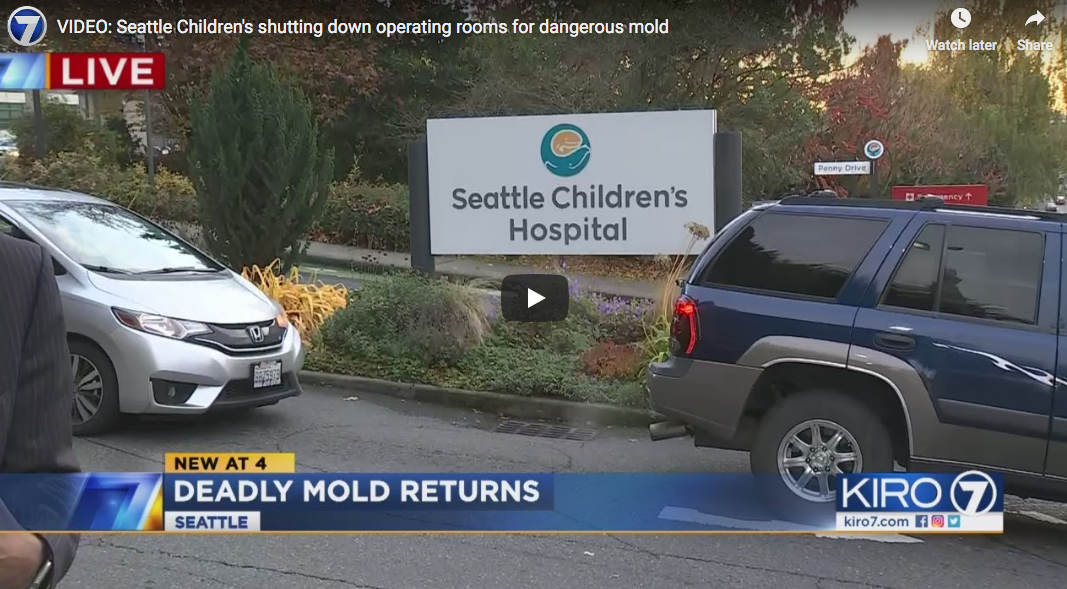Seattle Children’s Hospital has closed ten of its operating rooms to install new air filtration systems after linking six patient deaths with mold infections.
Seattle Children’s CEO Jeff Sperring said during a news conference Monday:
“We have been working to make our operating rooms safe to prevent aspergillus infections. To date, we have not been successful.”
RELATED STORY:
As we’ve previously reported, this is an ongoing problem at the hospital. Between 2001 and 2018, fourteen patients developed aspergillus surgical site infections. Out of those patients, six patients died. Sperring said:
“At the time, we believed those were isolated incidents. We now believe that these infections were likely caused by the air-handling system that serves our operating rooms.”
“Looking back, we should have made the connection sooner. Simply put, we failed.”
Two custom-built air handlers will be installed and in-room HEPA air filtration systems will be employed in all operating rooms. HEPA filtration removes 99.97 percent of all particles from the air that moves through the filter.
RELATED STORY:
“This is the highest level of filtration found in operating rooms today,” Sperring said. He apologized to those affected by both the aspergillus infections and the shutdown of the operating rooms, saying:
“This is simply devastating for them and for us. You are extraordinary kids, courageous families. We let you down and I am sorry.”
Reports from both state and county health departments indicate that mold was an ongoing problem at Seattle Children’s Hospital. In 2018, a surgeon at the hospital reported that debris had fallen out of an air diffuser during surgery into a patient’s open abdomen.
RELATED STORY:
Improvements in the hospital’s filtration system are expected to completed by the end of January 2020. Other hospitals will handle surgeries originally scheduled at Seattle Children’s Hospital. A statement from Seattle Children’s Hospital read:
“We know this closure will result in the postponement of many surgeries, and we are sorry for the impact this will have on our patients and families. We are confident this is the safest option for our patients.”
Aspergillus is a common mold found both indoors and outdoors. People with compromised immune systems or lung diseases have an increased risk of developing aspergillosis, a fungal infection caused by the mold.
When present in the lungs, aspergillosis acts much like pneumonia. Exposure to aspergillus mold spores during surgery can lead to infections that present like bacterial infections. Symptoms can include swelling and hotness.
RELATED STORY:
An epidemiologist and professor at the University of Washington’s School of Public Health said healthy people breath the mold spores everyday with no harm at all, adding:
“Ordinarily with current medications that are available, in combination with someone’s immune system helping to fight back, we can clear those infections. But sometimes they’re too severe to be able to clear.”












